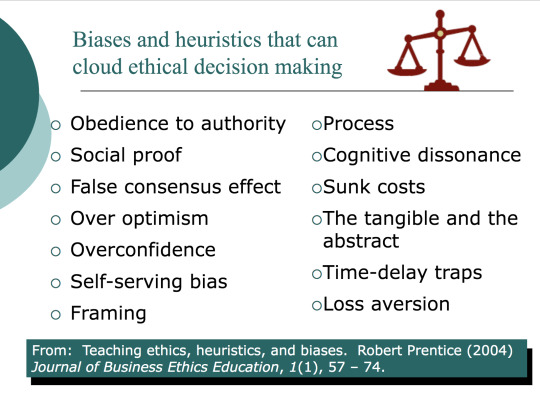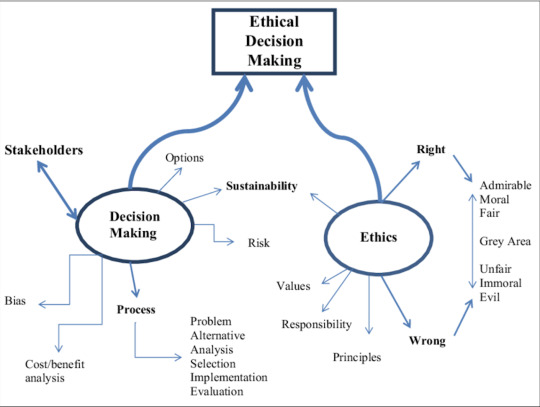#EthicalDecisionMaking
Explore tagged Tumblr posts
Text
#OrganizationalCulture#EthicalLeadership#Globalization#CorporateSocialResponsibility#EthicalDecisionMaking
0 notes
Text
The Ahura Mazda Approach to Ethical Leadership in Business

In the dynamic landscape of modern business, the pursuit of profit often overshadows ethical considerations. However, drawing inspiration from the teachings of Zoroastrianism and the concept of Ahura Mazda, we can redefine leadership in a way that prioritizes integrity, compassion, and justice. This approach not only fosters sustainable business practices but also promotes a harmonious relationship between individuals, organizations, and society at large.
Understanding Ahura Mazda:
Ahura Mazda, the supreme deity in Zoroastrianism, embodies the principles of truth (Asha) and righteousness. As the source of all goodness and wisdom, Ahura Mazda guides individuals towards virtuous actions and ethical conduct. In the context of leadership, embodying the spirit of Ahura Mazda means leading with integrity, transparency, and a commitment to the greater good.
Ethical Leadership in Business:
Integrity and Honesty: Ahura Mazda values truthfulness above all else. Ethical leaders uphold honesty in their dealings, whether it's in financial transactions, communication with stakeholders, or maintaining the trust of employees. Transparency builds credibility and fosters a culture of integrity within the organization.
Compassionate Decision-Making: Ahura Mazda is characterized by compassion and benevolence towards all beings. Ethical leaders prioritize empathy and understanding in their decision-making process. They consider the impact of their choices on employees, customers, and the community, striving to minimize harm and promote the well-being of all stakeholders.
Justice and Fairness: Ahura Mazda stands for justice and righteousness. Ethical leaders ensure fairness in their policies, practices, and treatment of others. They uphold equal opportunities, diversity, and inclusivity within the organization, fostering a culture of respect and dignity for all individuals.
Long-Term Sustainability: Ahura Mazda's vision extends beyond immediate gains to long-term sustainability and prosperity. Ethical leaders prioritize environmental stewardship, social responsibility, and ethical supply chain management. They recognize their role in shaping the future and take proactive steps to mitigate risks and create shared value for society.
Practical Toolkit for Ethical Leadership:
Lead by Example: Demonstrate ethical behaviour in your actions, decisions, and interactions with others. Your conduct sets the tone for the organization and inspires trust and confidence among employees.
Establish Clear Values: Define core values that align with the principles of Ahura Mazda and integrate them into the organization's mission, vision, and culture. Communicate these values consistently and hold yourself and others accountable for upholding them.
Promote Ethical Awareness: Provide training and education on ethical leadership, including case studies, role-playing exercises, and discussions on ethical dilemmas. Foster a culture where ethical considerations are central to business discussions and decision-making processes.
Encourage Open Communication: Create channels for open dialogue and feedback, where employees feel comfortable raising ethical concerns or reporting misconduct. Actively listen to their perspectives and address issues promptly and transparently.
Reward Ethical Behaviour: Recognize and reward individuals who demonstrate ethical leadership and embody the values of Ahura Mazda. Celebrate examples of integrity, compassion, and justice within the organization to reinforce desired behaviours.
Evaluate Impact: Regularly assess the ethical impact of business practices, policies, and decisions on stakeholders, society, and the environment. Use metrics and indicators to measure progress towards ethical goals and identify areas for improvement.
Collaborate for Collective Good: Foster partnerships and collaborations with like-minded organizations, NGOs, and community groups to address societal challenges and promote positive change. By working together, we can amplify the impact of ethical leadership and create a more just and sustainable world.
Incorporating the Ahura Mazda approach to ethical leadership into daily business routines requires commitment, courage, and perseverance. By embracing these principles, leaders can not only enhance the ethical integrity of their organizations but also inspire others to follow a path of righteousness and goodness in all aspects of life.
#EthicalLeadership#Zoroastrianism#BusinessEthics#LeadershipValues#AhuraMazda#SustainableBusiness#CorporateIntegrity#CompassionateLeadership#BusinessSustainability#EthicalDecisionMaking#ZoroastrianPhilosophy#SocialResponsibility#TransparentLeadership#CorporateCulture#JusticeInBusiness
1 note
·
View note
Text
Guide to Running a Business
Introduction: In today’s competitive business landscape, success is no longer solely measured by financial gains or market dominance. More and more, individuals are recognizing the importance of running a business with integrity, ethics, and a sense of responsibility towards stakeholders and society as a whole. This blog aims to explore the principles and practices that define a true gentleman…

View On WordPress
#BusinessEthics#BusinessWithIntegrity#EthicalDecisionMaking#EthicalEntrepreneurship#EthicalLeadership#FairCompetition#GentlemanInBusiness#GivingBackToSociety#IntegrityMatters#PhilanthropyMatters#RespectfulWorkplace#ResponsibleCorporateCitizenRemember#SocialResponsibility#SustainableBusiness#TransparentBusiness
0 notes
Text
#EHM2Task3#CodeOfEthicsAnalysis#LegalResponsibility#EthicalAnalysis#HealthcareEthics#SampleAnalysis#EthicalDecisionMaking#LegalCompliance#HealthcareStandards#EthicsInHealthcare
0 notes
Text
One Fatal Flaw most people have.
The Warrior's Trinity: Unifying the Physical, Psychological, and Ethical Mindset
The Warrior's Trinity: Unifying the Physical, Psychological, and Ethical Mindset In today’s world of constant challenges and distractions, The Warrior’s Trinity provides a transformative guide to mastering life’s ultimate battleground: yourself. Written by Donald M. Husband Jr., a seasoned martial artist and philosopher, this groundbreaking book weaves ancient wisdom with modern insights to help readers build physical strength, psychological resilience, and ethical clarity—the three pillars of the Warrior’s Trinity. At its core, this book is a practical framework for personal mastery. Drawing from centuries of martial arts traditions, The Warrior’s Trinity explores the teachings of Zen Buddhism, Taoism, and the discipline of Spartan warriors alongside the strategic brilliance of Sun Tzu’s Art of War. This unique synthesis provides tools to cultivate inner and outer strength while empowering you to face adversity with courage, composure, and integrity. More than a theoretical exploration, this book equips you with actionable strategies to enhance your body, mind, and character. Through exercises, meditative practices, and advanced combat drills, it bridges martial discipline with daily life, helping you overcome fear, manage stress, and navigate challenges with ethical grounding. Key Highlights: Physical Strength: Training methods for building functional power, endurance, and precision. Mental Resilience: Techniques to overcome fear, sharpen focus, and develop situational awareness. Ethical Clarity: Practical guidance for living with humility, honor, and integrity. Historical Insights: Stories and lessons from Shaolin monks, Spartan warriors, and modern martial arts systems. Actionable Practices: Exercises and reflective prompts to align your body, mind, and ethics. Whether you are a martial artist, leader, first responder, or simply someone seeking self-mastery, The Warrior’s Trinity will inspire and guide you. It’s a philosophy for living with purpose, turning conflict—internal or external—into an opportunity for growth. Discover what it means to embody strength, balance, and honor. Step onto the path of the Warrior’s Trinity and begin your timeless journey of resilience, wisdom, and self-mastery. Order yours today:
Available: Hardback & Paperback available on Amazon https://www.amazon.com/dp/B0DS28X3P9
Paperback available on Barnes & Noble https://www.barnesandnoble.com/w/the-warriors-trinity-donald-husband-jr/1146774111?ean=9798992297515
Most people have this one fatal flaw.
Author's Site: http://www.donaldmhusbandjr.com Website: http://www.shihansdojo.com Facebook: https://www.facebook.com/shihansDojo/ Tumblr: https://www.tumblr.com/blog/shihansdojo X: @shihansdojo
#HealingJourney #MentalResilience #GrowthMindset #RiseStronger #OvercomeAdversity #Leadership #ethicaldecisionmaking #warriorsmindset #selfdefense #confidencechallenge #Strength #martialartsmastery #atheleticfocus #warriorsspirit #hopefortomorrow #booktok
0 notes
Text
Unravelling of an Idea continued
Recent disclosures about the abuse of power and positions within aid organisations and charities reminded me of the quote: “ A week is a long time in politics” ( Harold Wilson). In a very short time a few major charities have fallen from grace, no longer regarded as exemplars of altruism and good works. Rather some have been exposed as a refuge for serial abusers, demonstrating poor safeguarding and unsafe work environment and have lost the confidence and donations of their benefactors. High salaries for executives and poor HR practices for mainstream workers have been highlighted. These events have raised doubts in my mind about the viability of promoting an idea that is linked to some fairly toxic associations.
Then I muddied the waters further when I explored the ethics of charitable giving and philanthropy.
Here are arguments favour of charity http://www.bbc.co.uk/ethics/charity/duty_1.shtml
and those against
http://www.bbc.co.uk/ethics/charity/against_1.shtml
My position is that while I hate the need for charity and the negative impact that some forms have on people’s ability to make positive changes, the needs of the poor and underprivileged still exist; I cannot simply take a critical stance, I still need to do something.
This element of my research has helped me to realise that technology is not neutral. Right now it tends to favour the wealthier populations of the world. I want to work out a way to develop my idea so that it can benefit a range of people in the developed and developing world with a win-win outcome.
1 note
·
View note
Photo

We introduced in the previous post how ethical decision making can be subject to biases.
These 12 attribution biases can hurt the nature of a decision, affecting its final outcome and ultimately its ethical dimension.
These biases will be exemplified throughout this blog’s journey. All along this blog, we will illustrate how they have triggered and induced poor ethical decision making over time.
Prentice, R. (2004). Teaching ethics, heuristics and biases. Journal of Business Ethics Education, 1(1), 57-74.
0 notes
Photo

Hi there! Welcome to our first blog entry ever. To start things off, we had the first two sessions of our Ethics, Organizations and Society Class and we are super excited to share our thought and ideas with you guys.
Many of you have probably heard of normative ethics before, not everyone will know the name but once we get into it you will see that normative ethics is something many have learned about before. Normative ethics is the study of ethical action, so simply put, the study of distinguishing what we do is right or wrong. There are basic principles that were established in order for us to better judge our actions and if what we intend to do is actually good. One example is virtue ethics, it looks at the person rather than the action, meaning that if you do something bad with the intention of being good, your action can still be considered good. We personally dislike this way of thinking. Of course, the original intent of a person needs to be taken into account when looking at their actions, but you cannot disregard the actual action. So, for example, if someone opens a cage in a zoo to release an animal held in captivity, which is a noble thought, but this leads to property damage, maybe even personal harm. Then this action cannot be good in our opinion, no matter how noble the original thought. This example is a bit extreme as it goes against laws, but the gist is, if someone does something bad, it does not become better because the intent was good, or because the person normally is good. A wrong action remains wrong, even if the person doing it isn’t.
This is another extreme example, three women wanted to launch lanterns into the sky as part of a new year’s celebration and by accident lit a monkey exhibit on fire and killing the monkeys. The idea to celebrate the new year like that isn’t wrong, but the outcome is, and their good intent does not make up for killing dozens of monkeys.
A normative ethics theory that we actually really like though is consequentialism. It basically judges an action by its outcome and consequences, where bad consequences mean bad actions. We believe this is something very simple and can really serve as a foundation for people to not break the law and go absolutely nuts every now and then. If we were to rob a store and get caught, we would be prosecuted and might have to go to jail depending on the severity of our actions. This fear of going to jail is the main thing keeping us from going store to store taking what we want, that and our consciousness which would be screaming in pain if we did that. But what if we do not get caught and except for the fear of consequences our mind is good with it, does that make robbing a store good because of no consequences? NO! Of course not. The shop owner will have to take up new security measures, will lose profit on the items we stole and will feel less safe in his own store. Our action would not have consequences on us at first, but on the people involved.
All this talk about theories led to session two, ethical decision making. This session was more about what we do and why we do it. What moves a person to behave differently? What happens every day that changes companies and organizations form within? We watched a great video which still stays on my mind from time to time. Basically, the professor said that there are common misconceptions with the way we see business ethics. People misunderstand both business and ethics. If you think business is solely about profits, there’s your first misconception. Furthermore, ethics is about how we strive together not by ourselves, so there’s number two. And lastly, people are complicated. Not one person can cooperate the same with everyone, and no business process can run as smoothly with humans as it would be with machines, but that is a good thing because humans push innovation and lead to development. We highly recommend the video, so go watch it (https://www.youtube.com/watch?v=v7yjQzRcf-U).
We further discussed decision making and the ethical influence on it and let us tell you, decision making cannot be easy. It never is and never will be but that’s okay, because we can help each other. Hard decisions might come easier to some people because of their situation and their circumstances, but everybody can make a decision and if we make mistakes, we can help each other out when trying to fix it. We think one of the best examples is the corona pandemic going on right now. Some governments took it more strictly than others and profited from it. Some countries sadly are doing rather poorly with the pandemic affecting their people harshly, but other countries can help. China for example, sent doctors to Italy when the pandemic slowed down for them but continued in Italy. By now, almost every country is in full lockdown mode, but once this is over, we are sure we can help each other build up what fell.
If you want our opinion on ethical decision making, we don’t think there is a possibility to make the perfect decision. There will always be someone affected in a way that was not intended, or someone not gaining from a decision. Making the best possible decision is all we can do, and try to do, but under uncertainty that isn’t easy most of the time. Therefore, we have to collect information, consult with other people and accept the possibility of making a mistake. Only then can we learn and make future decisions the best we possibly can.
Picture retrieved from: https://www.pinterest.com.au/pin/383650462002699211/
0 notes
Photo

Follow @kapilbalharanebsarai Follow @kapilbalharanebsarai Follow @kapilbalharanebsarai Follow @kapilbalharanebsarai Follow @kapilbalharanebsarai Follow @kapilbalharanebsarai Follow @kapilbalharanebsarai . . . . Like Share Subscribe . . . . #ethics #utilitarianism #ethicsmeaning #businessethics #virtueethics #ethicaldilemma #ethicalissues #bioethics #ethicalprinciples #moraldilemma #moralcompass #normativeethics #deontologicalethics #deontological #kantianethics #professionalethics #nicomacheanethics #ethicaltheories #medicalethics #utilitarianismmeaning #appliedethics #metaethics #ethicaldilemmaexamples #moralprinciples #ethicalleadership #ethicsofcare #ethicaldecisionmaking (at Kayna Creations) https://www.instagram.com/kapilbalharanebsarai/p/CYiPAswvbMG/?utm_medium=tumblr
#ethics#utilitarianism#ethicsmeaning#businessethics#virtueethics#ethicaldilemma#ethicalissues#bioethics#ethicalprinciples#moraldilemma#moralcompass#normativeethics#deontologicalethics#deontological#kantianethics#professionalethics#nicomacheanethics#ethicaltheories#medicalethics#utilitarianismmeaning#appliedethics#metaethics#ethicaldilemmaexamples#moralprinciples#ethicalleadership#ethicsofcare#ethicaldecisionmaking
1 note
·
View note
Text
The Ethics of Business: How Spiritual Beliefs Influence Decision-Making

In the intricate tapestry of business ethics, one often overlooked thread is the influence of spirituality on decision-making. Amidst the hustle and bustle of boardrooms and balance sheets, there exists a profound interplay between individual spiritual beliefs and the ethical choices made in the realm of commerce. This article seeks to explore this symbiotic relationship, unravelling the ways in which spirituality molds decision-making processes in the business world.
At its core, spirituality embodies a set of deeply held beliefs and values that guide an individual's understanding of the world and their place within it. While religion can be a part of spirituality, it transcends mere adherence to dogma, encompassing a broader sense of connection, purpose, and meaning. In the context of business ethics, spirituality serves as a compass, navigating the turbulent waters of moral ambiguity and guiding individuals towards decisions that align with their higher principles.
One of the fundamental ways in which spirituality influences decision-making in business is through the cultivation of empathy and compassion. Spiritually grounded individuals often prioritize the well-being of others and the greater good above narrow self-interest. This altruistic perspective informs their business decisions, leading them to consider the impact on stakeholders beyond just profitability. Whether it's ensuring fair treatment of employees, practicing environmental sustainability, or contributing to social causes, spiritual beliefs compel individuals to view business as a vehicle for positive change in the world.
Moreover, spirituality fosters a sense of interconnectedness and interdependence, recognizing the web of relationships that bind individuals, organizations, and society as a whole. This holistic perspective encourages collaborative and inclusive decision-making processes, where diverse voices are heard, and consensus is sought. In the boardroom, leaders grounded in spirituality are more likely to prioritize transparency, integrity, and trust, fostering environments conducive to ethical conduct and long-term success.
Furthermore, spirituality provides a framework for grappling with ethical dilemmas that inevitably arise in the course of business. Drawing upon principles of wisdom, discernment, and moral courage, spiritually informed individuals navigate complex moral terrain with clarity and integrity. They are guided not only by legal statutes and profit margins but also by a deeper sense of right and wrong rooted in their spiritual beliefs. This ethical compass serves as a beacon, illuminating the path forward even in the face of adversity or temptation.
It's essential to recognize that spirituality in business is not confined to individual belief systems but can also manifest in organizational cultures and practices. Companies that embrace spirituality as a core value often prioritize principles such as authenticity, humility, and service. These organizations cultivate a sense of purpose beyond mere profit maximization, inspiring employees to contribute their talents towards a shared vision of collective flourishing. In such environments, business becomes more than a transactional exchange; it becomes a sacred endeavour, imbued with meaning and significance.
Nevertheless, the integration of spirituality into business ethics is not without its challenges. In a world driven by materialism and short-term gains, spiritual principles may clash with prevailing norms and practices. Skeptics may dismiss spirituality as irrelevant or incompatible with the cutthroat realities of the marketplace. However, it is precisely in these moments of tension and resistance that the transformative power of spirituality shines brightest, challenging us to envision a more ethical and sustainable approach to business.
In conclusion, the ethics of business are deeply intertwined with spirituality, shaping decision-making processes and organizational cultures in profound ways. By acknowledging the influence of spiritual beliefs on ethical conduct, we can cultivate environments that prioritize values such as empathy, interconnectedness, and integrity. In doing so, we not only foster greater well-being and flourishing within organizations but also contribute to the creation of a more just and compassionate world.
As we navigate the complexities of the modern business landscape, let us heed the wisdom of spirituality, recognizing that true success is not measured solely in financial terms but in the richness of our relationships, the integrity of our actions, and the legacy of our contributions to society. In embracing the ethics of business guided by spiritual principles, we embark on a journey towards greater meaning, purpose, and fulfillment for ourselves and future generations.
#SpiritualBusiness#EthicalLeadership#PurposeDriven#BusinessEthics#CompassionateCommerce#SustainableSuccess#ConsciousCapitalism#EmpatheticLeadership#EthicalDecisionMaking#HolisticBusiness#ValuesDriven#SociallyResponsible#MindfulLeadership#PurposefulProfit#EthicsMatter
0 notes
Text
The Ripple Effect: How Personal Spiritual Growth Transforms Professional Success

In the bustling world of career advancement and professional success, it's easy to get caught up in the relentless pursuit of goals and achievements. We often find ourselves navigating through a sea of deadlines, meetings, and projects, striving to climb the corporate ladder or excel in our chosen fields. Yet, amidst this whirlwind of activity, there exists a profound truth that we sometimes overlook: the undeniable connection between personal spiritual growth and professional fulfillment.
Imagine for a moment the image of a stone being gently dropped into a still pond, sending ripples outward in all directions. Similarly, personal spiritual growth has the power to create a ripple effect that extends far beyond our individual selves, touching every aspect of our professional lives.
At its core, personal spiritual growth encompasses a journey of self-discovery, introspection, and inner transformation. It involves delving deep into the depths of our being, exploring the essence of who we are, and connecting with something greater than ourselves. Whether through meditation, prayer, mindfulness, or contemplation, spiritual practices offer a pathway to inner peace, clarity of mind, and a heightened sense of awareness.
But how does this journey of personal spiritual growth translate into tangible benefits for our professional lives? The answer lies in the profound ways in which spirituality shapes our attitudes, behaviours, and interactions in the workplace.
One of the most significant benefits of personal spiritual growth is its ability to cultivate a sense of purpose and meaning in our work. When we align our professional endeavors with our core values and beliefs, we infuse our work with a sense of significance that transcends mere material success. This deeper sense of purpose not only fuels our motivation and drive but also fosters a greater sense of fulfillment and satisfaction in our careers.
Moreover, personal spiritual growth enables us to cultivate essential qualities such as empathy, compassion, and resilience, which are invaluable assets in the professional realm. By nurturing our capacity for empathy, we become better equipped to understand the perspectives and experiences of our colleagues, clients, and stakeholders, fostering stronger relationships and effective communication.
Similarly, spiritual growth equips us with the resilience to navigate through the inevitable challenges and setbacks that arise in our professional lives. By drawing upon inner reservoirs of strength and wisdom, we develop the resilience to bounce back from failures, adapt to change, and persevere in the face of adversity.
Furthermore, personal spiritual growth fosters a sense of interconnectedness and unity with others, transcending the boundaries of hierarchy, status, and competition in the workplace. When we recognize the inherent dignity and worth of every individual, we create a culture of respect, collaboration, and mutual support, where everyone can thrive and succeed.
Now, you might be wondering how you can embark on this journey of personal spiritual growth and harness its transformative power in your own professional life. The good news is that incorporating spirituality into your daily routine doesn't require grand gestures or elaborate rituals. It simply begins with a willingness to cultivate mindfulness, intentionality, and authenticity in everything you do.
Start by carving out moments of stillness and silence in your day, whether through meditation, prayer, or simply taking a few deep breaths to center yourself. Use this time to quiet the chatter of the mind, connect with your innermost thoughts and feelings, and listen to the whispers of your soul.
Additionally, take time to reflect on your core values, beliefs, and aspirations, and consider how they align with your professional goals and endeavors. Seek out opportunities to infuse your work with purpose and meaning, whether by volunteering for projects that resonate with your values or finding ways to make a positive impact in your workplace and community.
Moreover, cultivate a spirit of gratitude and appreciation for the blessings and opportunities that come your way, recognizing that every experience—both positive and negative—offers valuable lessons and growth opportunities.
Finally, nurture your relationships with colleagues, mentors, and peers, recognizing the inherent dignity and worth of every individual and fostering an environment of respect, trust, and collaboration.
In conclusion, personal spiritual growth has the power to transform not only our inner lives but also our professional success. By embarking on this journey of self-discovery and inner transformation, we unlock the door to a world of purpose, fulfillment, and abundance in our careers. So, let us embrace the ripple effect of personal spiritual growth and watch as it transforms our lives and the world around us.
#SpiritualGrowth#ProfessionalSuccess#MindfulLeadership#InnerTransformation#CareerFulfillment#EthicalDecisionMaking#ResilienceInBusiness#SoulfulLeadership#EmpatheticLeadership#AuthenticityAtWork#IntegrityInAction#CompassionateLeadership#InnovativeMindset#ValuesDrivenSuccess#InnerPeaceAtWork#HarmonyInTheWorkplace#LeadershipWithHeart#ProfessionalEnlightenment#EmpoweredProfessionals#TransformativeLeadership
0 notes
Text
Nurturing the Soul: Kirat Karni and the Spiritual Essence of Honest Earning

Prelude:
In the tapestry of spiritual wisdom, the concept of Kirat Karni stands as a beacon, guiding individuals toward a life of righteous deeds and honest earning. Rooted in Sikh philosophy, the mantra "Sachee Dharam Karan Keejaai" invites us to perform actions with integrity and righteousness. This exploration delves into the profound spiritual significance of Kirat Karni and its universal relevance, resonating with the hearts and minds of LinkedIn's readership.
Kirat Karni: Beyond Financial Transactions:
At its core, Kirat Karni extends far beyond the realm of financial transactions. It embodies the ethos of performing one's duties with honesty, sincerity, and a commitment to righteousness. The mantra "Sachee Dharam Karan Keejaai" underscores the importance of engaging in actions that not only contribute to personal well-being but also uphold the principles of justice, fairness, and ethical conduct.
Sachee Dharam Karan Keejaai: The Call to Righteous Action:
The opening words of the mantra, "Sachee Dharam Karan Keejaai," resonate as a call to righteous action. Kirat Karni emphasizes the importance of aligning one's professional and personal pursuits with a higher moral compass. By choosing a path of integrity, individuals embark on a journey of self-discovery and contribute positively to the greater good.
Honest Earning as a Spiritual Practice:
Kirat Karni recognizes that the way we earn our livelihood is not separate from our spiritual journey—it is an integral part of it. Honest earning becomes a spiritual practice, an avenue for personal growth, and a means to foster a harmonious connection with the world. The mantra encourages individuals to view their professional endeavours as a sacred opportunity for self-realization.
Beyond Financial Gain:
While financial prosperity is a natural outcome of diligent work, Kirat Karni emphasizes that the pursuit of wealth should not compromise ethical principles. The mantra invites individuals to consider the broader impact of their actions, fostering a mindset that seeks prosperity not just for personal gain but for the collective well-being of society.
The Relevance of Kirat Karni in the Modern Professional Landscape:
In an era marked by economic complexities, technological advancements, and a shifting corporate landscape, the principles of Kirat Karni offer a timeless guide for individuals navigating the challenges of the modern workplace. Its relevance extends beyond cultural and religious contexts, providing universal insights for fostering ethical conduct and personal fulfillment.
Integrity in Professional Relationships:
Kirat Karni calls for integrity in all professional relationships, urging individuals to uphold honesty, transparency, and fairness. In a world where trust is a valuable currency, these principles become the cornerstone for building strong, enduring connections with colleagues, clients, and stakeholders.
Contributing to Social and Environmental Well-being:
The ethical dimensions of Kirat Karni extend to the impact of one's work on society and the environment. Individuals are encouraged to consider the broader consequences of their professional choices, contributing to social causes and adopting sustainable practices that prioritize the well-being of the planet and future generations.
Personal Fulfillment and Professional Success:
Contrary to the notion that personal fulfillment and professional success are mutually exclusive, Kirat Karni suggests that they are interconnected. By aligning one's work with ethical principles, individuals create a foundation for enduring success that goes beyond financial achievements, encompassing a sense of purpose, satisfaction, and positive impact.
Mindful Leadership:
In leadership roles, Kirat Karni guides individuals to lead with authenticity and ethical acumen. Leaders who embody these principles inspire trust, loyalty, and a positive organizational culture. The mantra becomes a compass for decision-making, fostering a leadership style that prioritizes the well-being of employees and the broader community.
Cultivating Kirat Karni in Daily Professional Life:
The integration of Kirat Karni into daily professional life requires conscious effort and commitment. Here are practical steps for individuals seeking to embrace the principles of honest earning and righteous action:
1. Reflect on Values: Take time to reflect on personal and professional values. What principles are non-negotiable? How can these values guide decision-making in the workplace?
2. Align Career Choices: Ensure that career choices align with ethical principles and personal values. Seek opportunities that resonate with a sense of purpose and contribute positively to society.
3. Foster a Culture of Integrity: In leadership roles, cultivate a culture of integrity within the organization. Encourage open communication, transparency, and ethical decision-making at all levels.
4. Prioritize Social Responsibility: Integrate social responsibility into professional endeavours. Support community initiatives, adopt sustainable practices, and contribute to causes that align with personal values.
5. Continuous Learning: Stay informed about ethical practices in your industry. Embrace a mindset of continuous learning and adaptability, recognizing that ethical standards evolve with time.
Wrap-Up:
In a world driven by rapid change and multifaceted challenges, Kirat Karni emerges as a guiding principle for navigating the professional landscape with integrity and purpose. "Sachee Dharam Karan Keejaai" invites us to view our work not merely as a means of financial sustenance but as a sacred endeavour that contributes to personal growth and the betterment of society. As we embrace the principles of honest earning and righteous action, may we cultivate a workplace culture that reflects the timeless wisdom encapsulated in Kirat Karni.
#KiratKarni#HonestEarning#EthicalLeadership#SpiritualWorkplace#RighteousAction#PurposefulProfessionals#IntegrityInBusiness#HarmonyInWork#ProfessionalEthics#SoulfulWork#EthicalLiving#WorkplaceValues#CareerIntegrity#ConsciousProfessionals#HolisticSuccess#MindfulWork#EconomicEthics#BalancedProfessionals#AuthenticWork#EthicalDecisionMaking#LinkedInSpirituality
0 notes
Text
Is It Practical to Have Spirituality in Business?

Introduction:
In a fast-paced, profit-driven world of business, where competition is fierce and the bottom line is the ultimate goal, the concept of spirituality may seem out of place. Yet, an increasing number of business leaders and entrepreneurs are incorporating spiritual principles into their professional lives. Is it practical to have spirituality in business, or is it merely a utopian notion detached from the harsh realities of the corporate world? In this article, we'll explore the growing trend of spirituality in business and whether it is a practical and viable approach for achieving success and personal fulfilment.
The Intersection of Spirituality and Business:
At first glance, spirituality and business might seem like an odd couple. Spirituality often conjures images of meditation, self-reflection, and a deeper connection with the self and the universe, while business appears to revolve around profit margins, market share, and competition. However, the convergence of these seemingly disparate realms can lead to a harmonious and balanced approach to business, with practical benefits for individuals and organizations alike.
Mindfulness and Self-awareness:
Spirituality often encourages practices like meditation, self-reflection, and mindfulness. These practices can help business professionals develop a higher level of self-awareness, which is a valuable asset in any corporate setting. When individuals are more in tune with their thoughts and emotions, they can make better decisions, manage stress more effectively, and improve their interpersonal relationships. Self-awareness can also aid in understanding one's strengths and weaknesses, leading to more effective leadership and teamwork.
Ethical Decision-Making:
Spiritual values, such as compassion, honesty, and integrity, play a significant role in ethical decision-making. When these values are integrated into business practices, it can lead to a more ethical and responsible corporate culture. Ethical business practices not only enhance a company's reputation but also foster trust among employees, customers, and partners. This, in turn, can lead to long-term success and sustainability.
Employee Well-being:
Introducing spirituality into the workplace can improve employee well-being. By offering tools and resources for stress management, personal growth, and work-life balance, businesses can create a more nurturing and supportive work environment. When employees are encouraged to explore their spiritual side, it can lead to increased job satisfaction and higher morale. In turn, this can reduce turnover rates and enhance productivity.
Innovation and Creativity:
Spirituality can stimulate innovation and creativity in business. By encouraging employees to think beyond traditional boundaries and explore alternative perspectives, businesses can tap into new ideas and opportunities. When employees are given the freedom to express themselves and their unique viewpoints, it can lead to groundbreaking innovations that set a company apart from its competitors.
Long-term Vision:
Spirituality often emphasizes long-term thinking, focusing on the broader impact of actions and decisions. In contrast to the short-term profit-driven mindset, a spiritually informed approach encourages business leaders to consider the environmental and societal consequences of their choices. This can lead to the development of sustainable business models that not only serve the needs of the present but also safeguard the future.
Challenges in Implementing Spirituality in Business:
While the practical benefits of integrating spirituality into business are evident, it's essential to acknowledge the challenges and potential pitfalls that may arise.
Secularism and Diversity:
In today's multicultural and multi-faith world, businesses must be sensitive to diverse beliefs and backgrounds. Attempting to impose a specific spiritual framework or philosophy on employees can lead to discomfort, discrimination, or even legal issues. It's crucial to respect individual beliefs and provide a welcoming environment for all, regardless of their spiritual or non-spiritual orientation.
Measuring Impact:
One of the challenges in implementing spirituality in business is measuring its impact. Unlike more quantifiable metrics such as revenue or market share, the effects of spirituality on business culture and performance are often subtle and difficult to quantify. This can make it challenging to convince stakeholders of its practical benefits.
Balancing Profit and Purpose:
Businesses exist to make a profit, and spirituality should not be used as an excuse to ignore financial responsibilities. Balancing profit and purpose is essential. Implementing spiritual values should enhance business practices, not compromise the bottom line.
Practical Steps to Integrate Spirituality in Business:
If you're considering introducing spirituality into your business, here are some practical steps to get started:
Foster a Supportive Work Environment:
Create a workplace that encourages personal growth, mindfulness, and well-being. Offer resources for stress management, meditation, and self-reflection. Organize workshops or seminars on spirituality, ethics, and personal development.
Align Values with Actions:
Identify the core values of your organization and ensure they are reflected in your business practices. Encourage employees to act in accordance with these values and reward ethical behaviour.
Encourage Innovation:
Foster an environment where employees are encouraged to think creatively and share their unique perspectives. Allow for experimentation and be open to new ideas, even if they challenge the status quo.
Develop a Long-term Vision:
Consider the long-term consequences of your business decisions. How will they impact the environment, society, and future generations? Develop sustainable business practices that align with your spiritual values.
Respect Diversity:
Create a culture that respects and celebrates diversity. Ensure that spirituality is presented as an optional and inclusive aspect of the workplace, rather than a mandatory belief system.
Conclusion:
Is it practical to have spirituality in business? While the idea of integrating spirituality into the corporate world may seem unconventional, it offers a wealth of practical benefits. From enhancing self-awareness and ethical decision-making to improving employee well-being and fostering innovation, spirituality can contribute to a more balanced and successful business environment.
However, it's essential to approach this integration with sensitivity, respecting the diverse beliefs and backgrounds of your employees. The key is to strike a balance between profit and purpose, ensuring that your business remains financially viable while also adhering to spiritual values.
In a world where the relentless pursuit of profit often comes at the expense of well-being and ethical considerations, the inclusion of spirituality in business can offer a path to a more meaningful, sustainable, and successful future. Ultimately, the practicality of spirituality in business lies in its potential to create a more harmonious and purpose-driven work environment that benefits individuals, organizations, and society as a whole.
Meet Sarah, a successful entrepreneur who runs a small tech company with a unique approach to business. Sarah's journey into spirituality in business began when she faced a significant crossroads in her life.
As her company was growing rapidly, Sarah found herself overwhelmed by the constant pressure to meet revenue targets, manage her team, and keep up with the ever-changing tech landscape. She was on the brink of burnout, and it seemed as though the pursuit of profit had taken precedence over her own well-being and the well-being of her employees.
One day, while seeking relief from her stress, Sarah stumbled upon a mindfulness meditation retreat. During this retreat, she delved deep into the practice of mindfulness and self-awareness. This experience transformed her outlook on both life and business.
Upon her return, Sarah decided to integrate mindfulness and spirituality into her company's culture. She introduced meditation sessions during work hours and encouraged her employees to take time for self-reflection. She also initiated team-building exercises that emphasized compassion and open communication.
The results were astonishing. Employees reported reduced stress levels, increased job satisfaction, and improved collaboration. Productivity and creativity soared as her team found a sense of purpose beyond just meeting financial targets. As a leader, Sarah began to make more ethical and sustainable decisions for her company, earning the trust and loyalty of both her employees and clients.
In the end, Sarah's story is a testament to the practicality of spirituality in business. By incorporating spiritual principles such as mindfulness, self-awareness, and compassion into her company, she not only revitalized her business but also created a thriving, purpose-driven workplace. Sarah's journey demonstrates that spirituality can indeed lead to practical and positive outcomes in the often-cutthroat world of business, benefiting both individuals and the organization as a whole.
#SpiritualBusiness#EthicalLeadership#MindfulWorkplace#ValuesDriven#CorporateHarmony#BusinessSpirituality#PurposefulProfits#MindfulLeadership#HolisticSuccess#EthicalEnterprise#ConsciousBusiness#PositiveCorporateCulture#SustainableBusiness#EmpathyInWorkplace#BalancingValues#WorkplaceWellbeing#SpiritualGrowth#EthicalDecisionMaking#HarmoniousWorkEnvironment#MindfulBusinessPractices#ValuesInAction#PurposeDrivenProfits#ConsciousLeadership#BusinessWithHeart#MindfulSuccess
0 notes
Photo

The concept of ethical decision making is a complex one. This mind map highlights the merge between the decision making, and the underlying ethics, that constitute an individual’s ethical decision making.
We observe that several factors play a role in affecting the holistic process.
Decisions that have an ethical aspect are subject to various biases in how people see the situation and how they tend to behave
Reference:
Burch, G. F., Burch, J. J., Bradley, T. P., & Heller, N. A. (2015). Identifying and Overcoming Threshold Concepts and Conceptions. Journal of Management Education, 39(4), 476‑496. https://doi.org/10.1177/1052562914562961
#ethicaldecisionmaking#ethics#moral responsibility#right#costbenefit#values#risk#decisionmaking#processes
0 notes